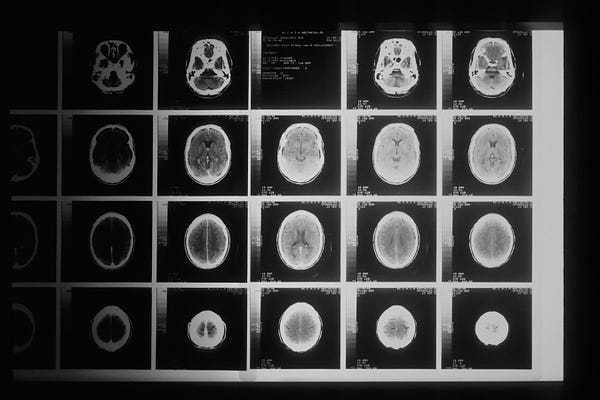The world of sleep is often shrouded in mystery and intrigue, but as we delve deeper into the psychology of nightmares, we uncover a fascinating intersection between our unconscious fears, emotions, and desires.
Nightmares have long captivated psychologists and sleep researchers, revealing hidden aspects of human nature that can be both unsettling and enlightening. While seemingly ephemeral and elusive, nightmares provide a unique gateway into personal growth and self-awareness, offering opportunities to explore the depths of the subconscious mind.
“I believe in everything until it’s disproved. So I believe in fairies, the myths, dragons. It all exists, even if it’s in your mind. Who’s to say that dreams and nightmares aren’t as real as the here and now?”
― John Lennon
In this article, we will investigate not only the emotional impact of these distressing dreams but also their potential connection to creativity, spirituality, and overall mental well-being.
Key Takeaways
- Understand the difference between nightmares and night terrors, and explore common nightmare triggers.
- Discover how dream analysis and psychoanalysis can empower us to decode nightmares and their underlying meanings.
- Examine the connection between sleep disorders and nightmares, and how they might influence one another.
- Gain insights into the role of REM sleep and the neuroscientific mechanisms that underlie the experience of nightmares.
- Learn practical strategies to cope with and reduce the frequency or intensity of nightmares, leading to improved overall well-being.
- Address pediatric concerns related to nightmares in children and adolescents, emphasizing the need for reassurance and support from caregivers.
- Appreciate the importance of continued research and individual exploration into the realm of nightmares to unlock our understanding of the subconscious mind.
What Are Nightmares?
Nightmares can be a distressing experience for many individuals, often leaving them with lingering feelings of dread and anxiety. Nightmares are vivid, disturbing dreams that often evoke intense feelings of fear, anxiety, and distress.
“I don’t paint dreams or nightmares, I paint my own reality.”
― Frida Kahlo
They typically occur during the rapid eye movement (REM) stage of sleep, which is when most dreaming takes place. In contrast, night terrors are episodes of extreme agitation and panic that occur during the non-REM sleep stage and are characterized by an absence of significant dream content. While both nightmares and night terrors can be distressing, they are distinct phenomena with unique features and underlying processes.

Various nightmare triggers have been identified, which may contribute to the onset of nightmares. Some common triggers include stress, trauma, sleep deprivation, and certain medications. In addition, exposure to frightening or disturbing content before bedtime, whether through movies, television, or personally distressing events, can increase the likelihood of experiencing nightmares.
“Strange, I thought, how you can be living your dreams and your nightmares at the very same time.”
― Ransom Riggs, Hollow City
Anxiety and stress, particularly in the context of sleep-related anxiety, can greatly influence the incidence and intensity of nightmares. The feelings of tension and apprehension that accompany us throughout the day may spill over into our dream world, manifesting as fear and anxiety-ridden scenarios within our dreams.
This phenomenon underscores the intricate interplay between our day-to-day emotional states and our nighttime experiences, and how unresolved emotional turmoil has the potential to surface during our most vulnerable moments of rest.
As strikingly unpleasant as they may be, nightmares can manifest in various forms across individuals. Nightmares can range from relatively mild, often characterized by a general sense of unease, to utterly terrifying, gripping episodes that evoke intense fear. These differences could be attributable to factors such as an individual’s personal experiences, cultural background, or predisposition to anxiety disorders and other mental health conditions.
Understanding the nature of nightmares and their triggers is an important step toward managing and potentially reducing their occurrence. By addressing the underlying stressors, practicing effective sleep hygiene, and fostering greater awareness of the interconnectedness between our waking and dreaming lives, we can begin to demystify the enigma that is the nightmare and pave the way for more restful and less distressing nights.
Dream Analysis and Nightmare Themes
Understanding our dreams and nightmares involves exploring various methods of dream analysis and dream interpretation. One widely known method of dream interpretation is the psychoanalysis of dreams, a process involving in-depth exploration of unconscious desires and fears.
“Childhood should be carefree, playing in the sun; not living a nightmare in the darkness of the soul.”
― Dave Pelzer, A Child Called “It”
Pioneered by Sigmund Freud, this approach suggests that nightmares may reveal significant aspects of our psyche, often unveiling deeper issues we face in our waking lives. By examining the symbols and themes in nightmares, we can potentially unlock and address the causes of emotional distress.

When examining nightmare themes, we often find many shared elements among different cultures and individual experiences. Some recurring themes include being chased, falling, losing control, and encountering threatening figures. By identifying these universal patterns in nightmare content, we may uncover the complex language of the dreaming mind and gain better insight into our fears and anxieties.
Another aspect of dream interpretation involves examining the dream content and context of the nightmare. This may include identifying symbols, colors, emotions, and situational factors present in the dream.
Paying attention to the details and dynamics of our nightmares can be useful in understanding the potential connections to our waking lives. This approach not only helps us process our fears but also provides valuable insights into our innermost thoughts and feelings.
Relationship Between Nightmares and Sleep Disorders
When it comes to understanding the connection between nightmares and sleep disorders, it’s essential to realize how intricately they are related. By examining sleep disturbances such as insomnia, sleep apnea, and sleep paralysis, we gain insight into how these disorders contribute to the incidence and frequency of nightmares.
“You learned to run from what you feel, and that’s why you have nightmares. To deny is to invite madness. To accept is to control.”
― Megan Chance, The Spiritualist
Dealing with constant sleep disturbances can create a cyclical pattern, where the disturbances contribute to nightmares, and the nightmares further exacerbate sleep issues. By exploring the relationship between these factors, we can better understand how to manage and potentially treat both conditions.

Individuals with insomnia are prone to experiencing increased nightmare frequency. The difficulty in falling asleep or staying asleep heightens anxiety and stress levels, leading to more vivid and distressing nightmares. Addressing the underlying causes of insomnia may, in turn, help reduce the occurrence of nightmares.
Sleep apnea, a disorder characterized by disrupted breathing during sleep, can also lead to nightmares. The frequent awakenings caused by sleep apnea often result in fragmented sleep and an increased likelihood of nightmares. Proper treatment and management of sleep apnea can improve overall sleep quality and potentially reduce nightmare occurrences.
Another sleep disorder, sleep paralysis, involves experiencing a temporary inability to move or speak while falling asleep or waking up. This frightening experience can be accompanied by vivid hallucinations and sensations akin to nightmares. The relationship between sleep paralysis and nightmares can be complex, as the fear associated with the disorder may instigate nightmares or exacerbate pre-existing ones.
“Even if she be not harmed, her heart may fail her in so much and so many horrors; and hereafter she may suffer — both in waking, from her nerves, and in sleep, from her dreams.”
― Bram Stoker, Dracula
It is also worth noting the association between sleep disturbances and mental illness, as many individuals facing conditions such as anxiety, depression, and post-traumatic stress disorder (PTSD) often experience disturbed sleep patterns and nightmares. Addressing and treating mental health concerns may simultaneously lead to improved sleep and reduced nightmare frequency.
The Role of REM Sleep in Nightmares
REM sleep, characterized by rapid eye movement, is a critical phase of the sleep cycle, often associated with vivid dreams and nightmares. During the course of a night, the human body undergoes several sleep cycles, each consisting of multiple stages.
REM sleep is the final and arguably the most important stage of each cycle, where brain activity increases to levels close to that of wakefulness. It is during this phase that the mind processes information gathered throughout the day and integrates it into long-term memory — a process known as memory consolidation.

Most vivid dreams and nightmares occur during REM sleep, as the brain is highly active and the body partially paralyzed. Our ability to recall these dreams, or dream recall, is significantly heightened during this stage. Studies have demonstrated that individuals awakened during REM sleep can recall their dreams with greater accuracy than when awakened from other stages.
When it comes to nightmares, research has shown that altered or disrupted REM sleep can result in more intense or recurrent nightmares. Factors such as mental and physical stress, medication side effects, and certain sleep disorders can impact the duration and quality of REM sleep, subsequently affecting one’s propensity to experience nightmares.
Trauma, Anxiety, and Their Influence on Nightmares
Both trauma and anxiety can play a significant role in the formation and perpetuation of nightmares. Through post-traumatic stress disorder (PTSD) and anxiety, individuals suffering from these conditions may experience recurring nightmares, often involving thematic content related to their traumatic event or general anxieties.
“There are many who don’t wish to sleep for fear of nightmares. Sadly, there are many who don’t wish to wake for the same fear.”
― Richelle Goodrich, Dandelions: The Disappearance of Annabelle Fancher
By closely examining these factors, the therapeutic potential of addressing and processing nightmares can be better understood and employed in treatment strategies.

Stressful life events, whether it be a singular traumatic experience or cumulative exposure to persistent stress, can influence dream content and exacerbate the frequency or intensity of nightmares. Individuals who suffer from PTSD often report distressing dreams associated with their traumatic experiences, as their minds wrestle with unresolved emotional conflicts during sleep.
The intricate relationship between nightmares and PTSD has led researchers to seek a deeper understanding of the brain’s processing of emotionally charged memories during sleep. This research has uncovered that recurring nightmares can represent a maladaptive response to trauma, where fragmented memories continue to haunt the individual, further exacerbating PTSD symptoms.
Anxiety, too, can be a catalyst for nightmares, with many individuals experiencing anxiety dreams that amplify their everyday worries and fears. These dreams often involve themes of helplessness, social rejection, or loss of control, and can become persistent sources of stress in and of themselves. Moreover, nightmares with higher emotional intensity have been linked to increased psychological distress and worsened anxiety symptoms.
“I still get nightmares. In fact, I get them so often I should be used to them by now. I’m not. No one ever really gets used to nightmares.”
― Mark Z. Danielewski, House of Leaves
Understanding the impact of trauma and anxiety on nightmares presents an opportunity to employ targeted strategies for alleviating these distressing dreams. One such approach is Cognitive Processing Therapy (CPT), a form of cognitive-behavioral therapy specifically designed to help individuals with PTSD process their traumatic experiences.
Through CPT, individuals can work on restructuring the maladaptive thought patterns that contribute to their recurring nightmares, ultimately reducing their emotional distress and improving their waking life.
The Interplay Between Nightmares and Mental Health Conditions
It is essential to examine the complex relationship between nightmares and mental health in order to understand how an increase in nightmare frequency can serve as a symptom of underlying psychological distress. Nightmares, while being distressing on their own, are also closely associated with nightmares and stress.
When an individual experiences high levels of stress or anxiety during their waking hours, these emotions can seep into their subconscious mind and manifest as nightmares. Studies have revealed a significant correlation between increased levels of stress and the occurrence of nightmares, highlighting the significance of addressing stress to improve sleep quality.
“Which is the true nightmare, the horrific dream that you have in your sleep or the dissatisfied reality that awaits you when you awake?”
― Justin Alcala
When it comes to sleep disturbances and mental illness, research has shown that individuals with mental health disorders often experience a higher frequency of nightmares. These sleep-related issues can exacerbate existing mental health conditions, creating a vicious cycle of emotional distress and poor sleep quality.

Evidence suggests that people with major depressive disorder, bipolar disorder, and generalized anxiety disorder are more prone to nightmares, which can further intensify the severity of their mental health symptoms.
An important aspect to consider is the correlation between nightmare frequency and emotional distress. Studies have demonstrated that individuals who experience recurring nightmares often exhibit increased levels of anxiety, depression, and suicidal ideation.
This suggests that addressing nightmares in therapeutic settings can have a significant impact on the emotional well-being of those who suffer from these distressing dreams.
Scientific Insights: Nightmares in the Brain
In order to understand the complex nature of nightmares, it is crucial to delve into the neuroscientific perspectives that uncover the activity within the brain during distressing dreams. This exploration offers insights into the cerebral mechanisms underlying nightmares, providing a clearer understanding of where and how nightmares manifest in the brain.
“These things do not happen in dreams, dear girl,’ he said, vanishing up to his neck. ‘They happen only in nightmares.’
His head spiralled and he was gone.”
― Marissa Meyer, Heartless
One essential aspect of the brain involved in nightmares is the limbic system. This system plays a vital role in regulating emotions, memory, and the overall emotional experiences within dreams. Studies on nightmares and the limbic system reveal that several components, such as the amygdala, hippocampus, and anterior cingulate cortex, are significantly involved in orchestrating the fear response in nightmares.

Furthermore, the amygdala is a crucial region responsible for processing fear and anxiety in the brain, which makes it a central component in creating the emotional content of nightmares. Research on nightmares and the amygdala has shown that increased activity in this region correlates with higher levels of fear during dream states, emphasizing its role in intensifying the emotional experience within nightmares.
Beyond the brain regions, an investigation into the neurotransmitters associated with nightmares uncovers an additional understanding of the chemical processes behind these distressing dreams.
Serotonin, a neurotransmitter commonly associated with mood regulation and well-being, has an essential role in the occurrence and intensity of nightmares. The role of serotonin in nightmares appears to be multifaceted, as both low and high levels of this neurotransmitter can contribute to the likelihood of experiencing nightmares, depending on the individual’s brain chemistry and other factors.
Overall, examining the brain networks, neurotransmitters, and specific regions involved in the formation of nightmares provides valuable scientific insights into the underpinnings of these distressing dreams.
By considering the interaction between the limbic system, amygdala, neurotransmitters, and the brain as a whole, we gain a comprehensive understanding of the complex cerebral processes that occur during nightmares.
These insights not only help to unravel the mystery behind nightmares but also contribute to the development of potential therapeutic interventions for individuals suffering from frequent nightmares and associated sleep disturbances.
Practical Guidance: Coping with Nightmares and Improving Sleep Hygiene
Dealing with and managing nightmares effectively can significantly improve overall sleep quality and well-being.
First, let’s discuss practical steps that can be taken to enhance sleep hygiene and potentially minimize the frequency of nightmares.
Improving sleep hygiene can set the stage for better quality sleep, ultimately reducing the impact of nightmares on one’s daily life.
1. Establish a consistent sleep routine: Going to bed and waking up at the same time each day, even on weekends, can help regulate the body’s internal clock, leading to more restful sleep.
2. Create a comfortable and relaxing sleep environment: A dark, quiet, and cool sleep space encourages better sleep.
3. Limit screen time before bedtime: Reducing exposure to bright screens and electronic devices at least an hour before bedtime will help signal to the brain that it is time for sleep.
4. Incorporate relaxation techniques: Practicing deep breathing, meditation, or progressive muscle relaxation can help calm the mind and body in preparation for restorative sleep.
Another approach to managing nightmares is through cognitive-behavioral therapy (CBT), particularly tailored for nightmares. Cognitive-behavioral therapy for nightmares focuses on identifying the patterns and triggers behind nightmares.
Working with a mental health professional who specializes in CBT can help with:
1. Cognitive restructuring: Reinterpreting and reframing negative thoughts associated with nightmares may decrease their emotional impact.
2. Exposure and response prevention: Gradual exposure to nightmare-related stressors can help individuals learn new coping strategies and reduce anxiety.
Finally, lucid dreaming techniques may offer another avenue to control and mitigate the effects of nightmares. Lucid dreaming involves becoming aware that one is dreaming while within the dream state.
This awareness may allow dreamers to exert control over their dreams, possibly changing the outcome of nightmares or even transforming them into positive experiences. Though more research is needed to fully understand the benefits of lucid dreaming, individuals can explore it by practicing techniques such as reality testing and maintaining a dream journal.
Pediatric Concerns: Nightmares in Children and Adolescents
Fostering a deeper understanding of sleep-related anxiety in children equips caregivers and parents with the necessary tools to offer reassurance and support. It encourages the development of strategies to discuss and alleviate fears associated with nightmares among young individuals.
“I think that love is stronger than habits or circumstances. I think it is possible to keep yourself for someone for a long time, and still remember why you were waiting when she comes at last…. I would enter your sleep if I could, and guard you there, and slay the thing that hounds you, as I would if it had the courage to face me in fair daylight. But I cannot come in unless you dream of me.”
― Peter S. Beagle, The Last Unicorn
As children grow and learn about the world around them, they may experience a wide array of emotions that can manifest in their dreams. Nightmares tend to peak between the ages of 7 and 12, often reflecting the developmental changes occurring in the child’s brain during this period. Matters of age-appropriate fears and anxieties can translate into distressing dream content.

Children with pediatric sleep disorders, such as sleep apnea or insomnia, can be particularly susceptible to experiencing nightmares. These sleep disturbances may exacerbate the presence of nightmares, resulting in a vicious cycle that hampers the child’s ability to achieve restful sleep.
Parental intervention plays a crucial part in helping children and adolescents navigate the fear and anxiety associated with nightmares. Caregivers can take various steps to alleviate their child’s sleep-related distress:
- Establishing a regular sleep schedule and consistent bedtime routine
- Creating a calm, soothing sleep environment
- Offering reassurance by discussing concerns and fears during waking hours
- Encouraging open communication about the nightmare content and validating the child’s emotions
- Introducing relaxation techniques, such as deep breathing or visualization exercises, before bedtime
A concerted effort to address the root causes of nightmares and sleep-related anxiety in children can lead to better sleep quality, paving the way for improved emotional well-being and overall development.
Conclusion
The psychology of nightmares holds significant implications for our overall well-being and understanding of the subconscious mind. Throughout this exploration, we’ve delved into the connection between nightmares and various psychological, physiological, and social factors.
From dream themes and interpretation to sleep disorders, mental health, and neuroscientific insights, the intricate layers that contribute to the formation and experience of nightmares have been unraveled.
“The stuff of nightmare is their plain bread. They butter it with pain. They set their clocks by deathwatch beetles, and thrive the centuries. They were the men with the leather-ribbon whips who sweated up the Pyramids seasoning it with other people’s salt and other people’s cracked hearts. They coursed Europe on the White Horses of the Plague. They whispered to Caesar that he was mortal, then sold daggers at half-price in the grand March sale. Some must have been lazing clowns, foot props for emperors, princes, and epileptic popes. Then out on the road, Gypsies in time, their populations grew as the world grew, spread, and there was more delicious variety of pain to thrive on. The train put wheels under them and here they run down the log road out of the Gothic and baroque; look at their wagons and coaches, the carving like medieval shrines, all of it stuff once drawn by horses, mules, or, maybe, men.”
― Ray Bradbury, Something Wicked This Way Comes
Through a comprehensive understanding of the underlying causes and triggers for nightmares, we can begin to address these factors and develop effective strategies to manage distressing dreams and improve sleep hygiene.
This understanding also offers the potential to access repressed emotions and unexplored aspects of the subconscious mind, enabling us to journey beyond the fear associated with nightmares and tap into the potential for personal growth and emotional healing.
As we continue to expand our knowledge and research in this field, the insights gained hold promise for enhancing our grasp on the complex interplay between dreams, emotions, and the human psyche.
Ultimately, these findings underscore the tremendous value in decoding the messages behind our most frightening dreams, highlighting their potential to serve as powerful tools for self-discovery, growth, and mental well-being.











